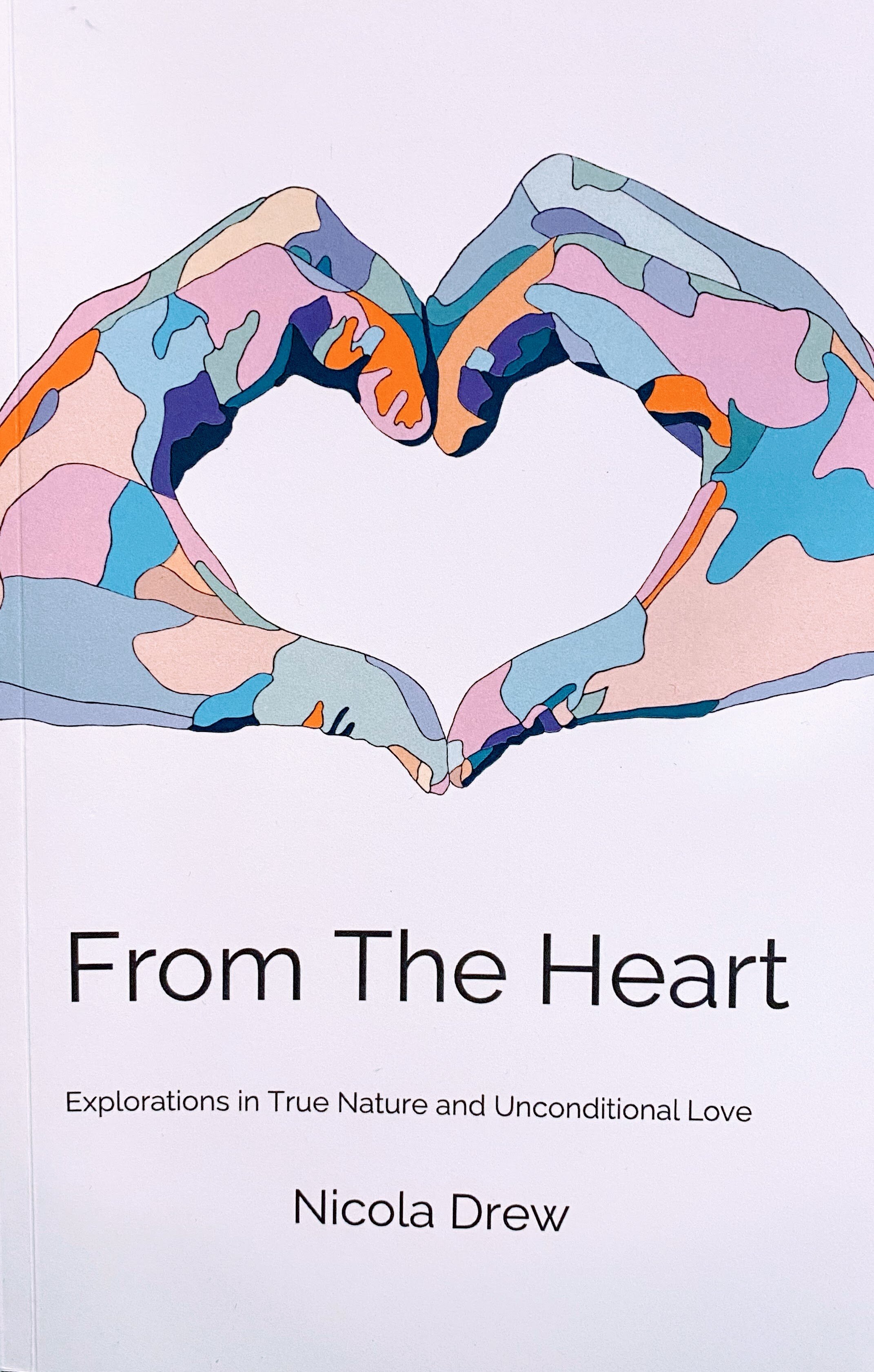What's Love Got to do with it?
Cover Artwork by Paul Lock Art
Over the summer I was asked to contribute to a book exploring our True Nature and Unconditional Love.
The idea for this book came to a woman named Nicola Jayne Drew right smack in the middle of a World Wide Pandemic. And despite her best efforts, it would not let go.
What makes this book all the more special is that all of the proceeds are being donated to the Heart Link Childrens Charity.
I am sharing my contribution here and if you are so inclined, please consider purchasing the book to read all of the other wonderful contributions. I hope you enjoy.
Tina Turner, the American singer-songwriter once famously asked, “What’s Love got to do with it?” Would you believe me if I said, “Everything.”?
It doesn’t take much to see the truth in this. Ask any person lying upon their deathbed to reveal what is most important in life and they will confess that it is Love. Always Love. The clarity with which they see this simple truth is singular in its focus. And yet, we, as the living, often overlook this heartfelt realization or perhaps, more importantly, misunderstand the profound truth of it as it relates to our own lives.
While most people think of love as a sensation that we feel in response to the outside world, I would suggest that Love - unconditional Love - is who we are at our core. It is our default setting and synonymous with our true nature. And when we fall open to this nature, we find that unconditional Love is as effortless as it is life-changing.
Beyond the words of the dying let’s also look to the opposite end of the lifeline for insight into our fundamental nature. Very young children, after all, are the closest manifestation of this nature in form. When not hungry, tired or soiled, small children fall open to this natural state of unconditional Love. Watch any young child and you will instantly be transported into their world where fireflies are magical, muddy puddles are an invitation for fun, and any living creature becomes an instant best friend. In the eyes of a child, all of life is met with an unconditional loving presence devoid of judgment. And it is in this state of unconditional Love that we humans thrive.
One of the most profound examples of this came from a story I heard about a man who called a Suicide Hotline and declared that he planned to take his own life that night. Before doing so, however, he wanted to talk to someone. He insisted that whoever he talked to must NOT make any attempts to change his mind and that if they did, he would hang up the phone and proceed with his plan. The person who took the call that night assured the man that he would respect his wishes. And so the two began to converse; each taking turns as they talked and then listened. By all accounts, it seemed like a normal conversation between two individuals. When the man at the hotline center finally hung up the phone, his colleagues asked after the welfare of the caller. The man replied that the caller had assured him that he was feeling much better and realized that he no longer wanted to take his own life. When asked what he'd done to create this turnaround, the man replied, "I simply loved him."
What this story demonstrates is the truly transformative power of unconditional Love - free from need or expectation or judgment.
In fact, coming from a place of pure love, one human soul was able to reach another human soul who was suffering, so that they, in turn, were able to reconnect with their own true nature and love for Life itself.
So, if unconditional Love is our true nature and we thrive in such a state, what gets in the way of living from that place?
The answer lies in understanding how our experience is created.
In truth, our personal realities are brought to life via the formless energy of Thought which we experience in form through our moment to moment thinking and feeling. Our behaviors then flow from that thinking and feeling. This trifecta of thought, feeling, and behavior is commonly known as our psychology. So when we wonder what gets in the way of our true nature, the simple answer is - our psychology. When we engage and identify exclusively with our psychology we become less present, aware, and grounded in our true nature.
So, let’s imagine, if you will, the first blush of love. Recall that at the beginning of a relationship, we are consumed by an open unconditional loving feeling for our partner. We are, in effect, completely aligned with our true nature of unconditional Love. In fact, any experience that doesn’t support a loving feeling is summarily rejected, ignored, or transformed by this alignment; that snorty little laugh is met with loving adoration rather than annoyance; the incessant cleanliness is met with fascination and acceptance rather than judgment, and that habit of nervous throat clearing is met with profound compassion rather than contempt.
In this natural state of unconditional Love, we become engaged, committed, and present to the health and success of our relationship and in so doing create an environment in which our relationship can thrive since inherent within unconditional Love lie qualities such as connection, compassion, humor, and acceptance.
So what happens to this unconditional Love?
As time goes by, we tend to get a tad bit comfortable and a lot more unconsciously engaged and caught up in our thinking! Our initial singular focus and presence become more muted as our minds begin to engage in other things and other thinking. As such, we tend to forget about "showing up" consciously in our Loving presence and instead lean on old habits of being, learnings, and deep-seated beliefs that developed in our formative years.
Over time we find ourselves reacting in ways that may seem automatic and familiar but are far from our alignment to our true nature. In our minds, the snorty laugh that was once adorable becomes obnoxious, the incessant cleanliness becomes suffocating, and the nervous throat-clearing becomes disdainful. These new reactions to familiar experiences do not arise from our innate nature of unconditional Love but rather from a personal mind that can’t help but narrate, evaluate, and judge our lives.
In fact, if we look closely at these reactions we find that they more often than not echo and mirror the words and behaviors of our parents, or caregivers, or community, or culture. In other words, we innocently imitate and adopt the learned psychology of others. In doing so, we, and our relationships, can suffer, particularly when we identify more with that psychology than with our true nature.
Our innocent covering over of our nature and misidentification with our psychology reminds me of the story of the Golden Buddha. Back in 1957, a group of Thai monks were moving a giant clay Buddha. As they did so, one of the monks noticed a crack in the clay from which emanated a strange golden light. Curious, the monk began to chip away at the clay until he soon discovered that the statue was made of solid gold. Historians now believe that hundreds of years earlier, Thai monks had purposely covered the Buddha in clay in an attempt to protect it from an invading army. And while the statue was preserved, its true golden nature lay forgotten for centuries.
So how do we uncover our own Golden Buddha?
We trust - secure in the knowledge that unconditional Love lies just beneath the surface of our thinking. It IS who we are when we aren’t busy staring at our psychology and listening to our personal mind. What we inevitably find is as our thinking begins to crack and break away, our true nature of unconditional Love shines through.
And that is everything.

